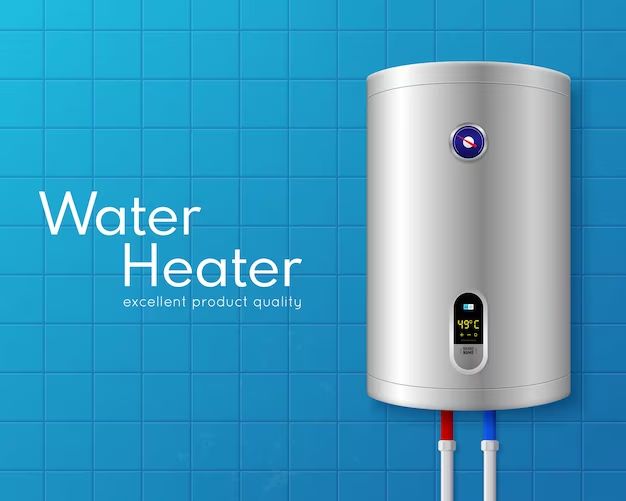On-demand or tankless water heaters are becoming increasingly popular in homes today. They provide hot water instantly whenever you need it. But are they the right choice for your home? Here is an in-depth look at the pros and cons of on-demand hot water heaters to help you decide.
Page Contents
How Do On-Demand Water Heaters Work?
On-demand or tankless water heaters do not store hot water like conventional storage tank heaters. Instead, they use very powerful burners that quickly heat water as it flows through the unit. This delivers a constant supply of instant hot water on demand.
Tankless heaters activate by turning on the hot water tap. Cold water travels through a pipe into the unit. Sensors detect the flow of water. The burners ignite to heat the water. An internal heat exchanger transfers the heat to the water. The now heated water flows from the unit directly to the hot water tap.
Once you turn off the hot water tap, the unit shuts down. No energy is wasted heating water when you don’t need it. This is different from storage tank heaters that maintain a tank full of hot water ready for use.
Benefits of On-Demand Water Heaters
On-demand water heaters offer several benefits over conventional storage tank models:
- Endless hot water – Tankless heaters provide a constant supply of hot water. You’ll never run out even for long showers or filling a large tub.
- Energy efficiency – Because they only heat water on demand, tankless heaters use less energy than storing and reheating water in a tank.
- Space saving – On-demand units are compact and mount on a wall. This clears up floor space.
- Longevity – An on-demand heater can last up to 20 years with proper maintenance. Tanks tend to need replacement after 10-15 years.
- Reduced heating costs – Their efficiency means less energy use for water heating, saving on utility bills.
Drawbacks of Tankless Water Heaters
While tankless water heaters have advantages, there are also some downsides to consider:
- Higher upfront cost – Purchasing a tankless unit costs significantly more than a conventional tank heater.
- Installation challenges – They often need upgraded gas lines, venting, and electrical service. This can add to installation costs.
- Flow rate issues – If your home needs more hot water than the tankless heater can heat at once, the flow rate may decrease.
- No hot water storage – Tankless heaters provide no hot water storage. You lose access to hot water if the power goes out.
- Cold water sandwich effect – You may get a burst of cold water between cycles as the heater activates. This depends on the distance from the unit to fixtures.
Ideal Homes for Tankless Water Heaters
Certain home profiles are better suited for reaping the benefits of tankless water heaters:
- Smaller households with 1-2 people. Larger families may require more hot water than tankless can handle at peak times.
- Newer construction. It’s easier and less expensive to install during new construction.
- Mild climates. Heaters sized for warmer climates may lack the power for colder regions.
- Good incoming water pressure. Tankless units need adequate flow rate to activate sensors and heat water efficiently.
- Homes with space constraints. A whole house tankless heater takes up about the size of a small suitcase.
Cost Comparison
One of the biggest considerations when deciding between an on-demand tankless water heater and a conventional storage tank is cost. Here is a comparison:
| Cost Factor | Storage Tank Heater | Tankless Heater |
|---|---|---|
| Equipment cost | $500 – $1500 | $1000 – $4000 |
| Installation cost | $200 – $500 | $500 – $3000 |
| Energy usage | 20-50 gallons stored water constantly reheated | No storage, heat as needed |
| Maintenance | Yearly checkups recommended | Annual professional cleaning advised |
| Lifespan | 10-15 years | 15-20 years |
While tankless heaters have a higher initial cost, their efficiency can yield cost savings over time. Your potential energy savings will depend on your current fuel costs, family size, and hot water usage.
Key Considerations When Choosing a System
Keep the following in mind when deciding between tank and tankless:
- Peak demand – Consider your home’s peak hot water needs. Tankless may not handle multiple uses at once.
- Climate – Colder regions need more powerful heaters. Make sure to choose adequate heating capacity.
- Venting – Tankless may need upgraded venting. Consider install requirements.
- Fuel source – Tankless models are powered by gas, propane, electric, or solar. Available fuel options may factor into your decision.
- Hot water use habits – Frequent long showers and multiple bathrooms favor tankless. Light use suits a storage tank.
Conclusion
In summary, tankless on-demand water heaters offer benefits like endless hot water, energy efficiency, and long-term cost savings. But they also come with a higher upfront cost and more complex installation. Storage tank heaters provide a lower initial investment but use more energy over time.
Carefully consider your family’s hot water requirements, fuel options, climate, and costs over the lifespan of the heater. This will help you decide if a tank or tankless model is the better choice for providing your household with a reliable supply of hot water.
